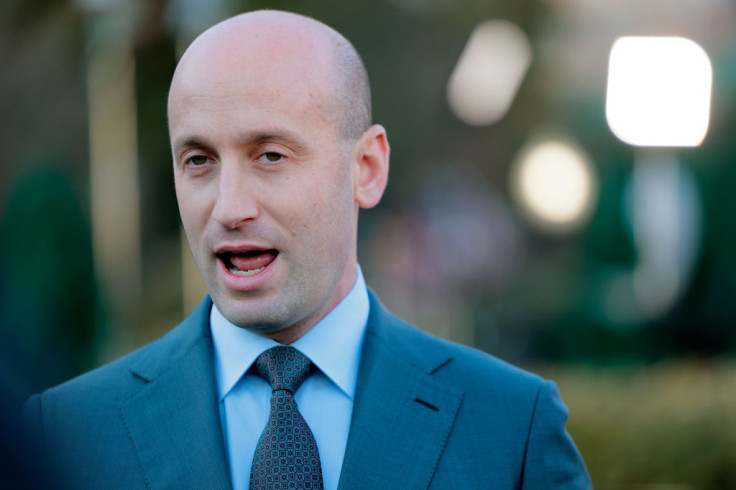
White House Deputy Chief of Staff Stephen Miller said on Friday that the Trump administration could suspend habeas corpus to carry out deportations currently being blocked by courts.
Speaking to reporters at the White House grounds, Miller said Trump could invoke the Constitution to enforce the decision. "The Constitution, which is the supreme law of the land, is clear. It says that the privilege of the writ of habeas corpus can be suspended in a time of invasion. So it's an option we're actually looking at," Miller said.
Stephen Miller says the White House is looking into suspending habeas corpus, which protects people from unlawful detentions: "A lot of it depends on whether the courts do the right thing or not." pic.twitter.com/AZLhFy79oZ
— CSPAN (@cspan) May 9, 2025
"A lot of it depends on whether the courts do the right thing or not," Miller added. He sought to back his argument by claiming courts around the country are overreaching and undermining the two other branches of government. He has repeatedly accused judges of committing a "judicial coup" when referencing rulings he or the administration disagree with.
Miller said that courts preventing the Trump administration for ending Temporary Protected Status for hundreds of thousands of Venezuelans illustrates his point. "By statute, the courts are stripped of jurisdiction from overruling a presidential determination or secretarial determination on TPS."
"When DHS Secretary Kristi Noem terminated TPS and courts stepped in, they were violating explicit language that Congress had enacteed saying they had no jurisdiction. Courts are at war with the Executive and Legislative branch. All will inform the decision the president ultimately makes," Miller added.
The Supreme Court recently ruled that people subjected to deportation under the wartime Alien Enemies Act must be given enough time to bring habeas corpus challenges before they are removed from the country, a decision that has led to several courts blocking deportations.
The writ of habeas corpus has been suspended only a few times in U.S. history. Article I of the constitution claims that the privilege "shall not be suspended, unless when in Cases of Rebellion or Invasion the public Safety may require it." The Conversation recalls that it was suspended by President Abraham Lincoln during the Civil War, in Hawaii after the bombing of Pearl Harbor, and rebellions in 11 South Caroline counties overtaken by the Ku Klux Klan during reconstruction after the Civil War.
In a 2004 case, Rasul v. Bush, the Supreme Court determined limits on when habeas corpus can be suspended. It said that even foreign detainees captured outside the U.S. and taken to Guantanamo Bay on suspected ties to terrorism were allowed to challenge their detention as well.
© 2025 Latin Times. All rights reserved. Do not reproduce without permission.





